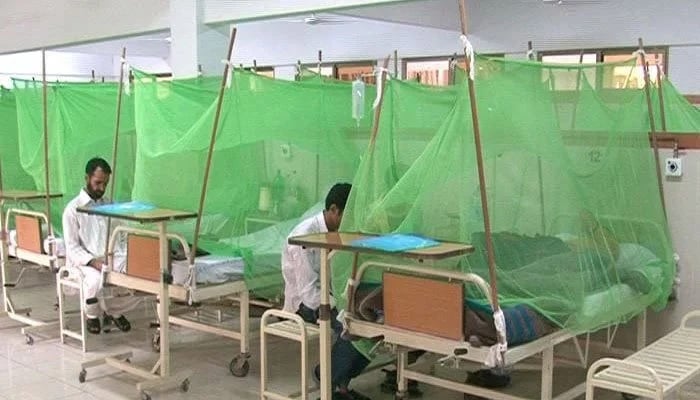Dengue virus soars, crosses 27,000 cases in Pakistan
Of the total caseload, highest patients to date reported in Punjab followed by Khyber Pakhtunkhwa
October 28, 2021

- Pakistan's dengue virus caseload goes over 27,000.
- From January 1 to October 27, 27,672 people have tested positive for mosquito-borne disease in country.
- Dengue is a mosquito-borne viral infection common in warm, tropical climates and often peaks during rainy seasons, says WHO.
Dengue virus infections are continuing to climb in Pakistan, as the case count crossed 27,000 this year to date, according to the official tally.
From January 1 to October 27, 27,672 people have tested positive for the mosquito-borne disease in the country, while it has claimed the lives of 67 people, as per the data of the ministry of federal health.
Of the total caseload, the highest patients have to date been reported in Punjab with 11,655 cases, followed by the Khyber Pakhtunkhwa with 5,337, Islamabad with 3,697 cases, Sindh with 3,564 cases, Balochistan with 1,916 cases and Azad Jammu and Kashmir with 1,503 cases.
The most number of people have died in Punjab, which recorded 34 deaths, followed by Sindh with 15 deaths, Islamabad with 11 and Khyber Pakhtunkhwa with seven, this year.
In comparison, only 6,016 cases of the dengue virus were reported last year across the country. But a whopping 53,498 patients were recorded in 2019, with 95 deaths.
Dengue is a mosquito-borne viral infection that is common in warm, tropical climates and often peaks during rainy seasons, states the World Health Organisation (WHO).
Once bitten by a dengue infected mosquito, the virus takes four-10 days to affect the body. Its symptoms can be mild, similar to a common flu, or severe such as fever, headaches, pain behind the eyes and nausea.
As per the WHO, the best way to prevent the virus is to wear clothing that covers the body well, especially the legs and feet, and apply insect repellents.









